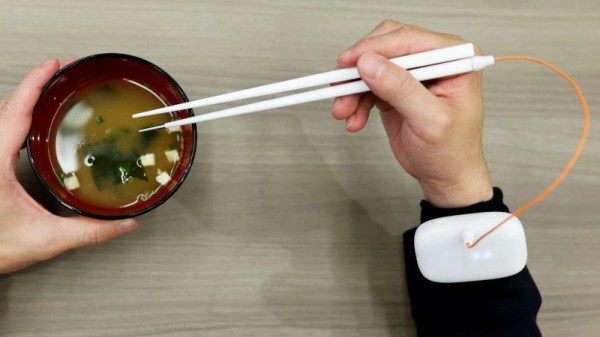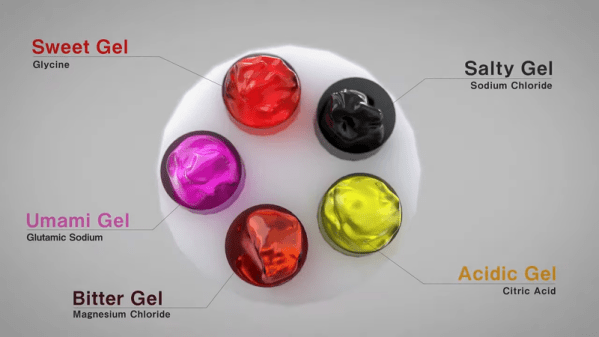The Japanese people love their salt, perhaps as much as Americans love their sugar high fructose corn syrup and caffeine. But none of these are particularly good for you. Although humans do need some salt in their diets to continue existing, the average Japanese person may be eating too much of it on a regular basis — twice the amount recommended by the World Health Organization, according to Reuters. Cue the invention of electric chopsticks, which provide salty flavor without the actual sodium.
No, you won’t get shocked — not even a fresh 9 V to the tongue’s worth. The tips of the chopsticks are made of something food-safe and conductive, and one is wired to a bracelet that contains a small computer. Using a weak current, the chopsticks transmit sodium ions from the food to the tongue, which increases the perceived saltiness by 1.5x. The device was co-created by a Meiji University professor and a Japanese beverage maker, who hope to commercialize it sometime next year.
This isn’t the first time humans have used trickery when it comes to diets. The older among you may remember the miracle berry weight loss craze of the 1970s. When ingested first, miracle berries make sour things taste sweet, so chowing down on grapefruits and lemons suddenly sounds like a good idea. What people failed to realize was that the acidity would still wreak havoc on their teeth and tongues, leaving them regretful the next day.
Images via Reuters












